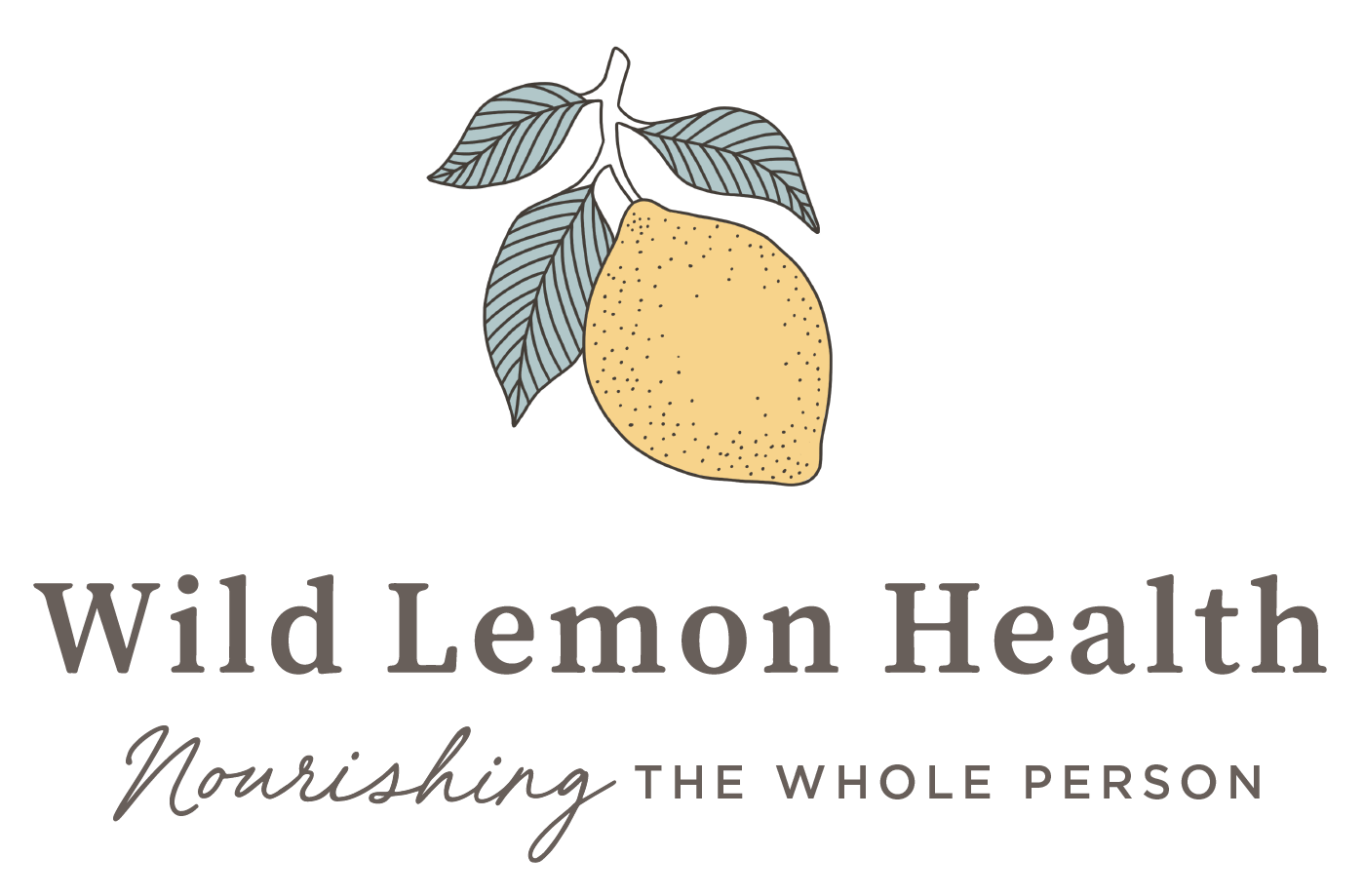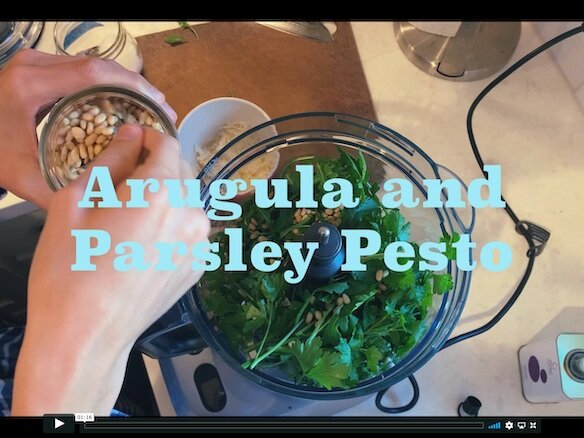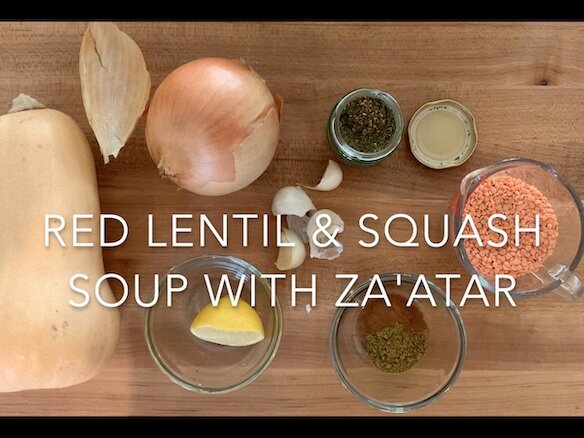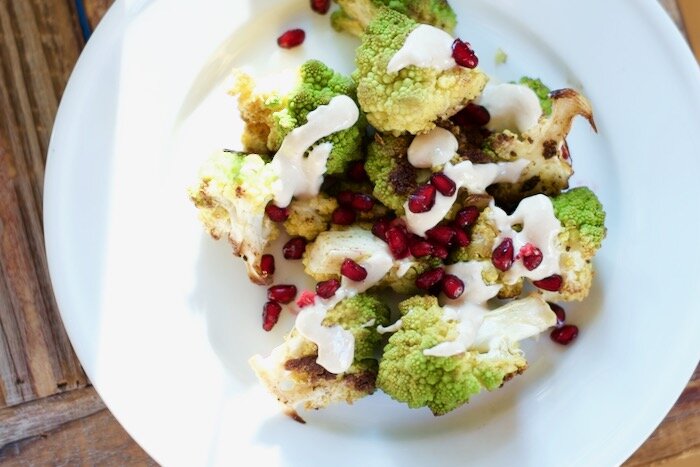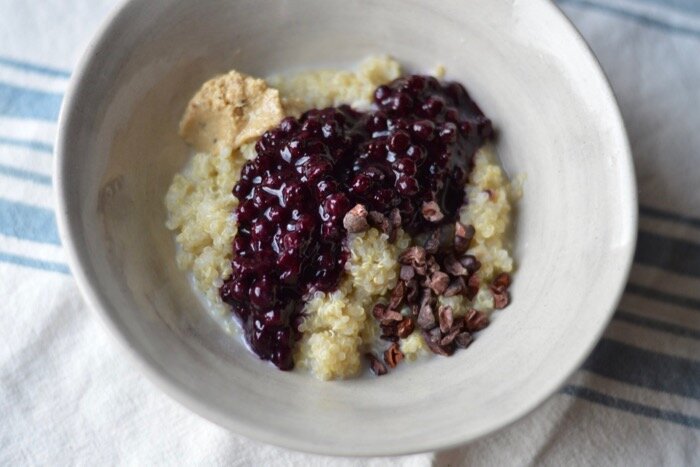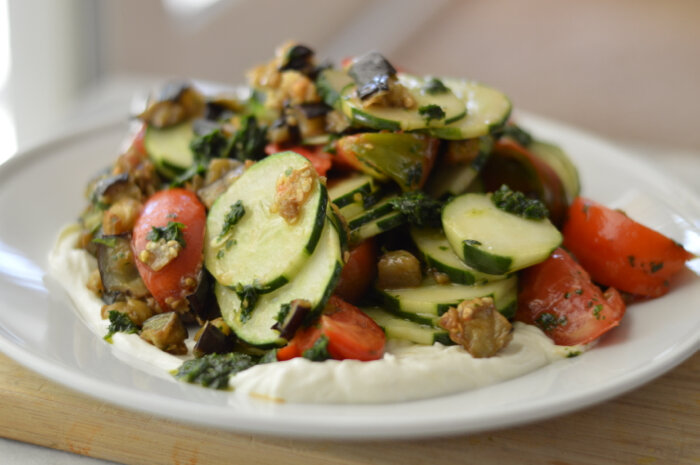What Is The Mediterranean Diet? And Other Frequently Asked Questions
The Mediterranean diet can provide numerous health benefits due to its balanced and high quality ingredients.
This particular diet is all about quality and patterns.
Consistent patterns in the way you eat, especially high quality nutritious foods, can aid your physical and mental health.
The Mediterranean diet may help in the prevention of chronic diseases like diabetes, heart diseases high cholesterol, hypertension, and specific types of cancer.
But it’s not just the type of food that’s beneficial to your health.
It’s also the healthy habits connected to this diet.
Things like having home cooked meals, moderation of certain foods, smaller portions, and living a more active lifestyle can make a big difference in your health.
I’m Dr. Antonella Aguilera-Ruiz, a naturopathic doctor with a virtual naturopathic clinic based in Sacramento, and I commonly use the Mediterranean diet as a foundational dietary pattern in my practice.
It can help you manage your weight, stave off many chronic illnesses, plays a key role in a naturopathic approach to depression management, and much more.
Today, let’s take a closer look at some of the many lessons from the Mediterranean we can learn when it comes to health, longevity, and vitality.
What Is The Mediterranean Diet?
The Mediterranean diet refers to the eating patterns that emerged along the regions bordering the Mediterranean Sea.
Beyond just food items, it’s considered an intangible cultural heritage of humanity by UNESCO. It encompasses not only the foods of this region, but the skills knowledge, rituals and cultural identity of this part of the world.
The Mediterranean food pyramid emphasizes fruits and vegetables, whole grains, lean meats, fish, nuts, legumes and olive oil and limits sweets, red meat and processed foods.
A traditional Mediterranean diet is therefore not dairy free, but does include unsweetened forms of dairy like hard cheese, ricotta and fermented yogurt.
Although the Mediterranean diet is very well researched, it can often be overly simplified to just focus on food items.
This misses that the actual food pyramid sits atop a foundation of the following:
Regular physical activity
Adequate rest
Biodiversity and seasonality
Traditional and local food products
Conviviality
It’s worth stressing the word conviviality here.
It points to the importance of eating as a ritual to be shared with others and the cultural link between people and the land.
The continuous pattern of consuming these types of foods may help increase longevity and decrease the development of chronic diseases.
Where Did The Mediterranean Diet Come From?
The Mediterranean diet emerged from the regions along the Mediterranean Sea.
This means there isn’t one single Mediterranean diet.
It spans different cultures and can include the traditional cuisine from Greece, Spain, Portugal, Italy, Croatia and Morocco.
The first to publicize the Mediterranean lifestyle was the researcher Dr. Ancel Keys.
In the 1950’s, Dr. Keys started doing research on the connection between diet and lifestyle, and heart disease and stroke. He found that people living in poorer towns in southern Italy were much healthier than well off people living in New York.
This was independent of ancestry as well – even New Yorkers whose ancestors came from southern Italy were less healthy than their Italian counterparts.
From there, he began his “Seven Countries Study”, researching the diets of people in Holland, Finland, the US, Greece, Yugoslavia, Italy, and Japan.
The results showed that people from Italy and Greece had a significantly lower rate of heart disease, which was attributed to their diet.
Since that time, research has continued to validate the health benefits of this style of eating.
What Foods Are Part Of The Mediterranean Diet?
The main emphasis of the diet is to include a lot of produce, healthy fats, whole grains, and lean proteins.
It’s also rooted in the idea of using fresh, seasonal ingredients, and avoiding anything that’s overly processed.
Let’s take a closer look at what foods are traditionally considered to be part of the Mediterranean diet.
Fruits And Vegetables
The foundation of the Mediterranean diet is based on eating lots of fresh fruits and vegetables.
There are no limits or restrictions – eat your preference.
However, it’s a good idea to stick to locally grown produce that’s in season.
This way, your food is at its freshest and has a smaller environmental impact.
You can use dark leafy greens like collard greens, kale, chard, beet greens, and more, to add to soups and frittatas.
Wild greens such as arugula, dandelion, and chicory are also great options to add to any dish.
Garlic is a versatile staple used for many dishes for both its flavor and health benefits.
As for fruit, it’s the same philosophy.
Whatever type of fruit you prefer that’s in season will fit in with the Mediterranean diet.
The idea with this diet is to eat more fruit in general rather than any one particular fruit.
These recipes are veggie forward options:
Fish and lean protein
Seafood is one of the key sources of protein in this diet.
Traditionally, this would have been locally sourced.
However, on the west coast this may include wild salmon.
Canned sardines and mackerel can be other options.
These fish are high in omega 3 fatty acids, which have a wide variety of health benefits.
Shrimp, clams, mussels, and other seafood are great options as well.
Other proteins in the Mediterranean diet include lean meats like chicken or eggs.
Red meat is not totally off limits, but you do want to limit it to 2 servings or less per week and opt for lean cuts versus fatty cuts.
If you’re looking for some examples, here are some protein based Mediterranean diet meals:
Legumes and nuts
Legumes are another category featured in the Mediterranean diet and are often an under appreciated source of phytonutrients as well as fiber.
The humble bean packs a hefty nutritional punch! They're also a plant-based source of protein, so can complement the animal sources we discussed above.
Nuts can include almonds, pecans, walnuts as well as seeds like sesame, pumpkin or sunflowers seeds.
They can be a great snack or used as a topping for salads.
Here are some recipes to try:
Extra virgin olive oil
Extra virgin olive oil is at the core of the Mediterranean diet and has numerous health benefits.
It’s packed full of nutrients and also adds a lot of flavor to food which can displace the need or craving for saturated fat.
Be sure to pick an olive oil that is extra virgin as it’s this quality that has been studied and traditionally used.
RELATED: How To Choose The Best Olive Oil
Whole Grains
The Mediterranean diet doesn’t avoid carbohydrates, but rather focuses on those coming from unprocessed whole grains.
Think oats versus oat flour or whole wheat pasta versus white pasta.
Farro and bulgur are two traditional grains that are often used in the Mediterranean diet.
Depending on the region, couscous, pasta, rice, quinoa, and barley are also common ingredients.
Here are some Mediterranean inspired recipes with grains in them:
Dairy
As mentioned previously, the Mediterranean diet is not dairy free and includes unsweetened dairy from cow, sheep and/or goat milk.
Moderate servings of low fat dairy like Greek yogurt and traditional cheeses are all fair game. Of course, this includes cheese like halloumi, feta and parmesan although there are many more depending on region and local production.
Yogurt not only adds extra protein and calcium to your diet, but because of its fermentation, it can provide healthy probiotics.
If you’re looking for some recipes that include dairy, take a look at some of these options:
Are You Allowed To Drink Red Wine With The Mediterranean Diet?
This is perhaps one of the most common questions I hear during The Dr And The Chef, a naturopathic series of events on building a stronger, healthier, more resilient brain.
The Mediterranean pyramid clearly states wine in moderation and if you’ve been to this region of the world, you’ve likely seen hills covered in vineyards.
There’s a tension between the data we have on alcohol and it being clear that it’s not good for our health, and the inclusion of red wine in moderation as part of the Mediterranean diet.
The way I reconcile this is twofold.
You need to look at this in the context of your whole health picture.
If you’re concerned with hot flashes or breast cancer, for example, skipping alcohol can be a good choice.
Also, remember that wine has a cultural role and is being consumed as part of dinner and in social situations.
Does this context mitigate the well established negative effects? Maybe.
There’s discussion that wine consumption might be a proxy for community connection in this setting.
Is community good for our health? Yes.
In the end, health choices balance risk-benefit and our own personal values and I’d put the answer to this question in that framework.
Is It Expensive To Eat A Mediterranean Diet?
Not necessarily.
The ingredients that form the base of the Mediterranean diet are generally affordable.
However, it’s worth recognizing that food access, security and cost are part of a greater public health discussion about social determinants of health.
Still, you can buy whole grains and legumes in bulk.
Frozen fruits and vegetables can be a healthy alternative and offer some cost savings.
Canned fish can be more affordable than its fresh counterpart.
Interestingly, researchers in Australia studying the Mediterranean diet compared to a more processed food diet.
They compared grocery receipts and found that eating a Mediterranean diet pattern was not more expensive.
Are You Allowed To Eat Junk Food On The Mediterranean Diet?
I’ll say this, the Mediterranean diet is a flexible pattern.
It emphasizes whole, unprocessed foods and ALSO leaves room for celebration and enjoyment.
Technically, when researchers give instructions around this eating pattern and survey how well individuals do, they’ll give guidance like “limit treats to 3x per week.” Treas means things like cakes, cookies, hot dogs, processed meats, etc.
Often, there’s the additional instruction to reserved desserts for celebrations.
I feel that within those guidelines, there’s room to be Mediterranean while still living your life and enjoying all the different aspects of food.
Is The Mediterranean Diet A Low Carb Diet?
No, it is not.
Can it be modified to meet other macro nutrient requirements? Certainly.
But, traditionally the Mediterranean diet is generally sitting around 4-8 servings of whole grains per day which would not make it low carb.
It also includes regular consumption of legumes which are a great phytonutrient and fiber source
Book Your Appointment With Wild Lemon Health Today
If you’re considering adopting the Mediterranean diet and have questions, I’m here to help.
I’m Dr. Antonella Aguilera-Ruiz, a naturopathic doctor in Sacramento, and we can help build a long term nutritional plan that meets your health goals.
To find out more about working with us, I offer a free 15 minute discovery call.
You can ask me any questions you may have about your health issues, our approach to nutrition, and about what Wild Lemon Health can do for you.
